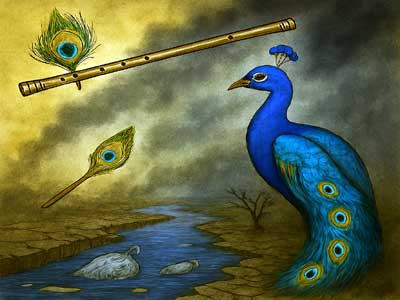Once, our lanes hummed with ‘Ram Ram’ and ‘Adaab’. Now, they crackle with expletives so inventive they'd make a gangster blush.
From Hindi to Tamil, Bengali to Telugu, India's linguistic diversity finds unity in one thing: a bottomless well of curses that drag women's bodies, castes, and family trees through the mud. What was once confined to drunken brawls now spices up weddings, boardrooms, and even PTA meetings. Activist Padmini Ayyar calls it "language's gutter overflow," where every conversation gets a splash of verbal sewage.
Read in Hindi: गलियों में गालियों की गूंज यानी भाषाई समाजवाद की दस्तक…!
And women? Oh, they’re not just victims anymore. They’re swinging back harder, matching men's expletives for expletive, proving equality can sometimes mean racing to the bottom. "We’ve gone from breaking glass ceilings to shattering eardrums with profanity," laughs sociologist TP Srivastav.
But why are we like this? Blame biology first. Swearing fires up the brain's primal zones, the same ones that kick in when you stub a toe or get cut off in traffic. Studies prove cursing actually numbs pain, a verbal aspirin for life’s daily bruises. Then there’s culture. Linguist Prof Paras Nath Choudhary calls it "non-violent violence", a pressure valve for a society squeezed by frustration. "When life feels like a faulty pressure cooker," he says, "abuse is the steam shooting out." And let’s not forget social media, where anonymity turns keyboard warriors into foul-mouthed gladiators, dropping insults like tweets.
Yet here’s the irony: we’re still using the same tired, medieval curses in the age of AI and space travel. Psychologist Dr Lola Dutt Jha sighs, "Where’s the innovation? Imagine feminist-approved slams targeting toxic masculinity, #GaaliDePehalwan. But no, we’re stuck recycling the same old filth with better WiFi."
The casualties? Elders, for one, whose dignity gets shredded faster than their pension letters. Women, who bear the brunt of sexually charged slurs as if their existence is an open invitation for verbal assault. And kids, who learn early that coarseness equals coolness, that a sharp tongue beats a sharp mind.
So, how do we break the cycle? Not by clutching pearls or preaching Victorian manners. Call out creatively, respond to abuse with withering sarcasm or dead silence, starving it of oxygen. Upgrade insults, why not shame corruption or laziness instead of mothers and sisters? Reclaim language, swap "maa ki gaali" for "sarkar ki bhakti," redirecting rage at systemic failures instead of personal cheap shots.
As Prof Choudhary puts it, "Stones break bones, but words? They leave fractures in the soul." And right now, India’s soul is limping. We’re the land that gave the world Sanskrit and Sufi poetry. It’s time to curse smarter—not just louder.
















Related Items
Radio still committed to inclusivity, credibility and national integration
Gen Z’s Abuse-Galaxy: ‘4K Decline’ of language in Indian Elite Schools!
Balanced population growth accelerated national development